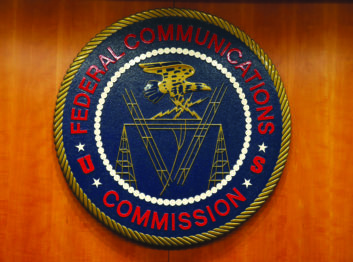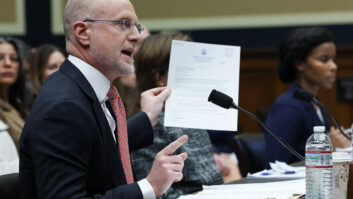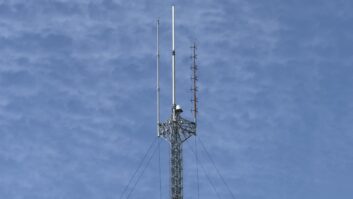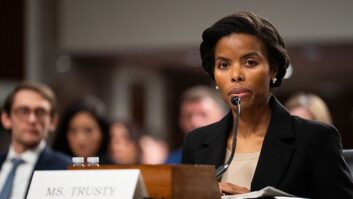
The power of community radio is driving the FCC to streamline certain rules affecting NCE and LPFM stations. That’s the feeling of several industry observers, attorneys and even FCC commissioners who commented after a commission action in February.
The FCC launched a proceeding to consider changes in how it compares and considers competing applications for new noncommercial educational FM stations, NCE FM translators and LPFM stations. Major modifications for those groups would also be affected, as would NCE TV stations.
When the NPRM was announced, Chairman Ajit Pai said some of the current rules are “needlessly complex and can trip up well-intentioned but inexperienced applicants seeking to bring new radio service to their communities.”
A VOICE IN THE AIR
“I think that even in a day of expanding audio opportunity, there is still something special about a voice in the air,” said Commissioner Jessica Rosenworcel after the FCC action in February. “There is still something powerful about broadcasting that sounds like the community where it comes from.”
At present, mutually exclusive applications for new NCE and LPFM stations are resolved with a multifaceted point system. While these procedures have certainly led to the grant of several thousand new station construction permits over the years, the FCC said, some of the current rules are challenging and have caused problems for applicants.
While none of the changes is monumental or dramatically consequential, each will remediate one of the “gotchas” in the rules that can cause a denial of an application, said John Garziglia, a partner with Womble Bond Dickinson.
“The FCC’s staff is to be commended for reviewing its rules that appear to cause compliance issues for NCE applicants,” he said. “To address those compliance issues, the FCC is proposing rule changes that keep underlying policies in place but make compliance less complicated for new station applicants.”
[FCC Proposes to Modernize and Improve NCE FM and LPFM Selection Procedures]
One of the more logical moves is the extension of LPFM construction permits to three years. “[That] is a no-brainer considering that there is now a routine one-additional 18-month extension for almost all LPFM permittees,” Garziglia said. “The FCC is putting into a rule that which is now practice.”
But he said holders of construction permits should be aware that, absent tolling, the proposed three-year time period for construction permits is likely to continue to be strictly enforced without further extensions.
MINI-WINDOW
Other industry organizations support commission concepts like the establishment of a mini-window. In cases where a timesharing proponent drops out for whatever reason, that same time slot would be available to a new entrant through a subsequent mini-window — rather than taking the time to reapportion it to any surviving stations, said advocacy group REC Networks.
However, because of the current 10-hour minimum rule, the dropped-out group may have only had a small amount of time — and that time may be in the middle of the night, such as the case of one time-share in Miami, said REC Networks’ Michelle Bradley. That may not be viable to a new applicant.
Bradley presented a proposal to FCC staff in February that would support the mini-window concept as well as address concerns about point-stacking that sometimes give some groups an unfair advantage.
Despite the mostly positive comments, there are a few proposals greeted less favorably by industry watchers — such as the one to lift reimbursement limitations for applicants that remain tied after all selection criteria are applied. The history of FCC application procedures, however, is that applicants mold themselves to whatever specific selection criteria will most prevail, Garziglia said.
“If the end result of the application process is a potential significant payoff or largess as a result of the removal of reimbursement limitations in a settlement, that will only encourage additional applicants formed specifically for the end result of receiving money,” he said.
Bradley expressed concern about the FCC’s policy of permitting applicants to pre-plan a time-share group and then use the rule that allows time-share proponents to only propose 10 hours of operation per week to be able to “stack” points in favor of the pre-planned group.
“We saw that take place in Philadelphia, Los Angeles and possibly Boston,” she said. “Point-stacking is where a single group asks for a large amount of time and then additional organizations are added on with 10 or 12 hours of time each in order to inflate the group’s score and their likelihood of being awarded the channel.”
All in all, however, Bradley said the proposed changes will help inexperienced applicants and increase the integrity of the application process. “Rule changes such as the certification and hopefully a documentation requirement for site assurance could have prevented a considerable number of questionable speculative filings in the 2013 LPFM window,” she said.
REASONABLE ASSURANCE
Garziglia also pointed to the need for applicants to be aware of some of the lesser-known requirements for NCE and LPFM applicants, including the requirement for a reasonable assurance of transmitter site availability.
“The FCC’s NCE and LPFM application instructions and forms currently make no mention of this requirement,” he said. “A significant number of NCE and LPFM applicants have had their applications denied due to a failure to have a reasonable assurance of site availability.”
The FCC is proposing to change its application instructions to state that requirement and alter its application form to require a certification of a reasonable assurance of site availability.
“With these changes, NCE and LPFM applicants will hopefully not be blindsided in the future by discovering far too late this FCC site-availability requirement,” he said.
The FCC wants to know what industry stakeholders think. Commenters are encouraged to use the commission’s ECFS database at www.fcc.gov/ecfs/filings, referencing Media Bureau Docket Number 19-3 or searching for the tongue-twisting moniker “Reexamination of the Comparative Standards and Procedures for Licensing Noncommercial Educational Broadcast and Low Power FM Stations.”
HIGHLIGHTS OF THE PLAN
“Mutually exclusive (MX) applications for new NCE and LPFM stations are currently resolved by applying comparative procedures that include a point system for selecting among MX applications,” the FCC stated. “This NPRM seeks to clarify, simplify and improve our selection and licensing procedures and thus expedite the initiation of new service to the public.”
Among other things, it tentatively proposes to:
- Eliminate a requirement that NCE applicants amend their governing documents to pledge that localism/diversity be maintained in order to receive points as “established local applicants” and for “diversity of ownership;”
- Improve the NCE tie-breaker process and reduce the need for mandatory time-sharing;
- Clarify aspects of the “holding period” rule by which NCE permittees must maintain the characteristics for which they received comparative preferences and points;
- Reclassify as “minor” gradual changes in governing boards with respect to non-stock and membership LPFM and NCE applicants;
- Extend the LPFM construction period from 18 months to a full three years;
- Allow the assignment/transfer of LPFM construction permits after an 18-month holding period and eliminate the three-year holding period on assigning LPFM licenses.







